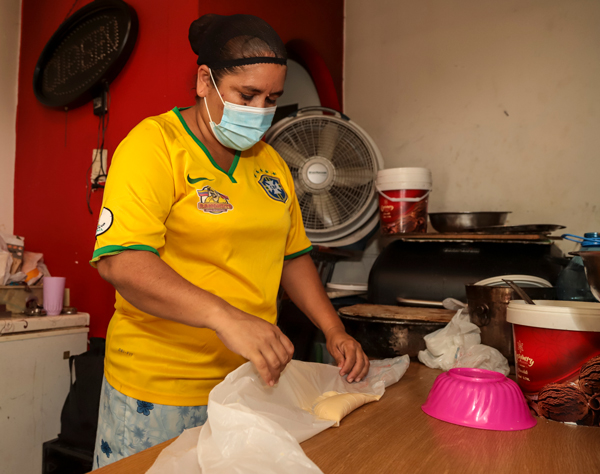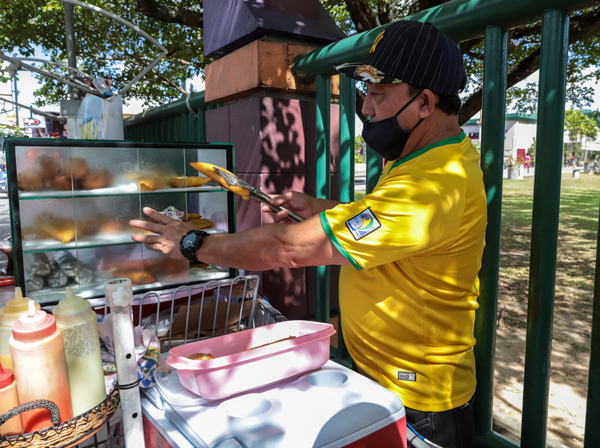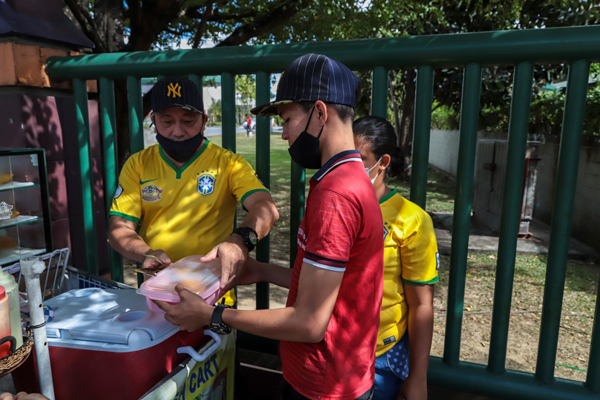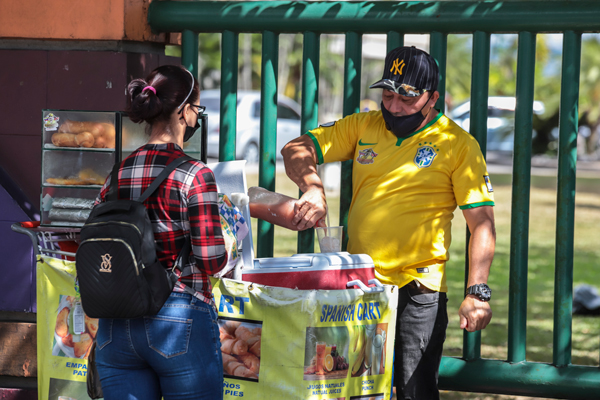
Jose Ricardo Diaz Madrigal and his wife Isabela Alicia Moreno*, arrived in Trinidad and Tobago from Venezuela seven years ago. They were seeking a place that would provide them refuge and the opportunity to see their children grow up in a safe and healthy environment. Chaguanas, a town in Central Trinidad, welcomed them with open arms.
“I faced political problems back home. I didn’t feel comfortable at my job” Jose said. As pressure at his job increased, he and his wife decided to leave Venezuela and seek asylum in Trinidad and Tobago.
The family now lives in Felicity, Chaguanas.
Arriving with very little, but with plenty faith, Jose and Isabela were able to gradually build a life in their new home – including raising three daughters who were born in Trinidad and Tobago.
Before opening his business, Jose worked a variety of odd jobs, including street cleaning, construction and welding. Eventually, he saved enough money, and together with Isabela and her mother Alma, started a family business selling Venezuelan food. Their first location was the popular triangle junction in Chase Village.
“We were selling Venezuelan hamburgers and Trinidadian grilled chicken, plus some sweets. It went very well for us. As we grew, we decided to look for another location.” Now, they operate along the Chaguanas Main Road, in the bustling town centre, where the have been for two years.


Jose was born in the San Fernando de Apure, in the heart of Venezuela, but lived in several different places throughout the country, where he learnt the traditional foods in those areas – and is the inspiration for his food and juices he prepares for his customers. Several of his customers are Venezuelans eager for a taste of home, as well as many Trinidadians who have come to love the different fare. He serves chicha, a cereal-based drink that can be prepared with semolina wheat flour, corn or rice, with milk, sugar and other ingredients.Also popular are stuffed buns, a kind of pastry filled with chicken and other meat, and of course, empanadas. Jose and his family have adapted to life in Chaguanas and Chaguanas is also adapting to them.
Every day they see more locals coming in to try Venezuelan food. The neighbouring Trinidadian vendors are more like friends than competition, and there are people everywhere from different nationalities speaking different languages. He and his team have food handling permits (issued by the Chaguanas Borough Corporation) and operate from a stall in the commercial centre dedicated to vendors. Sometimes, he goes out onto the street to attract customers. His operation is small, but Jose sees the opportunity to have his own business in Trinidad and Tobago as a positive. “You can get all the ingredients you need and that is important. Trinidadians also really like the Venezuelan flavours and the really support and encourage us,” he said. Jose and Isabela are also learning about Trinidad and Tobago cuisine. “Venezuelans really like Trinidadian food, and I am sure that many of us, when we return to our country, we will take back with us the flavours of the island and may even open Trinidadian restaurants!” Isabela said.
*Names changed to protect identities

Photos by Jeff K Mayers